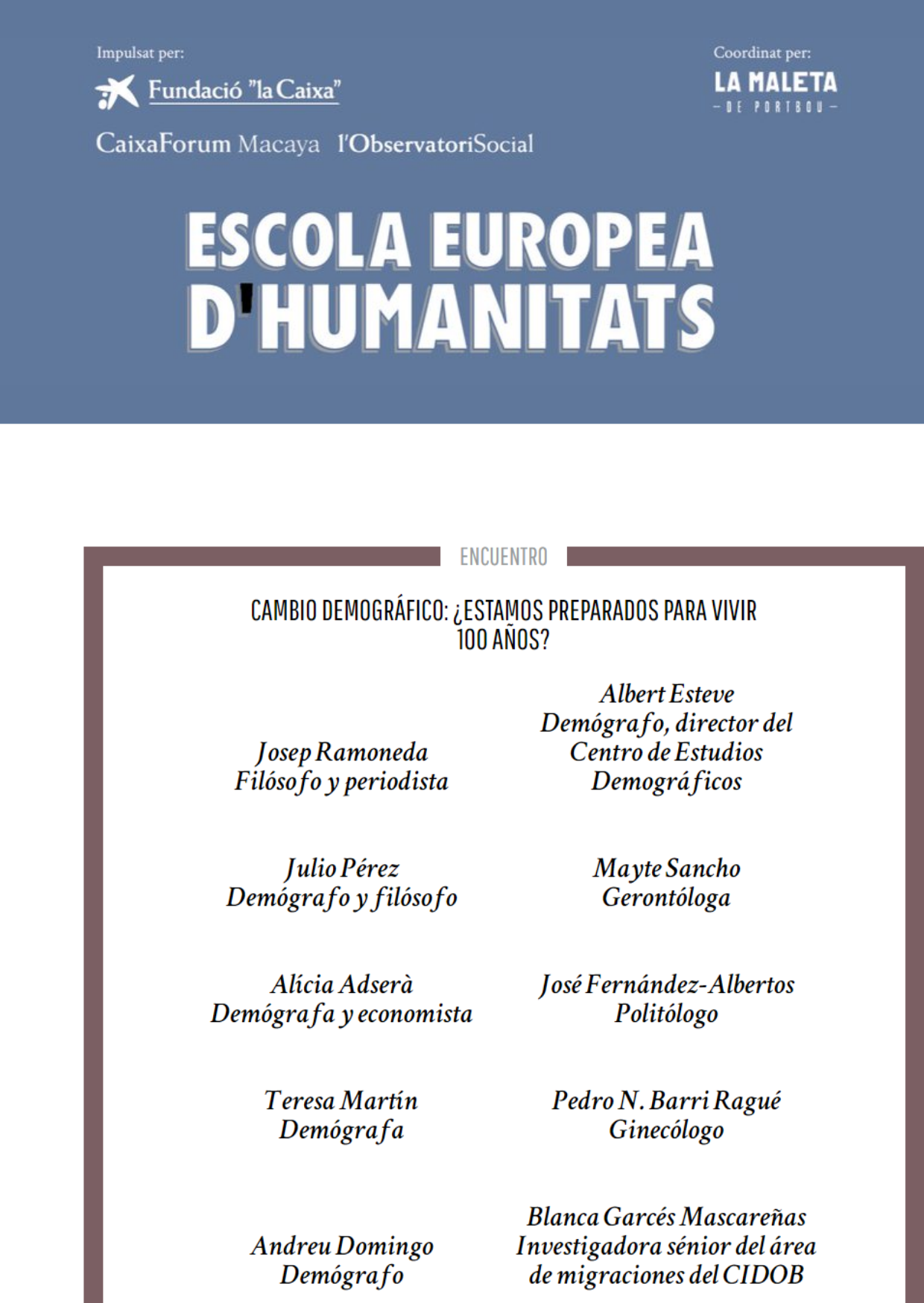Demographic change: Are we prepared to live 100 years?
The persistently low fertility rate and the increase in life expectancy in Spain and in most Western countries has accelerated the ageing process (relative and absolute) of the population to levels never before seen in the history of mankind. In societies such as ours, this transformation is aggravated by the arrival of the baby boom generations into old age. All of this could undermine the sustainability of the welfare state, the institutional machinery that distributes resources between generations in solidarity through contributions, taxes and transfers.
These sessions aim to debate the demographic, but also social and economic causes that have led us to this situation, contrasting the points of view - some more optimistic than others - of demographers and other social scientists, and analysing different fundamental questions, such as the role of migration, the difficulties in having children and also how Spanish society, at the forefront of demographic transformations worldwide, is facing this situation and how it is creating opportunities to rethink and organise our lives in a different way.
Are we prepared to live 100 years?
Programme
Wednesday. 16th March
17:00h. Presentation.
- Josep Ramoneda, Escola Europea d’Humanitats.
- Albert Esteve, demographer, director of the Centre for Demographic Studies and Serra Húnter Professor at Pompeu Fabra University.
17:10h. First session. THE AGEING OF POPULATIONS.
- Julio Pérez, demographer and philosopher.
- Mayte Sancho, gerontologist.
19:00h. Second session. LOOMING TENSIONS IN THE WELFARE STATE: CARE AND PENSIONS.
- Alicia Adserà, demographer and economist.
- José Fernández-Albertos, political scientist
Thursday, 17th March
17:00h. Tercera sesión. IS IT NECESSARY FOR CHILDREN TO BE BORN ALL THE TIME?
- Teresa Martín, demographer.
- Pedro N. Barri Ragué, gynaecologist.
19:00h. Fourth session. ¿ES NECESARIO QUE LLEGUEN MIGRANTES A CADA INSTANTE?
- Andreu Domingo, demographer.
- Blanca Garcés, sociologist.


.png)